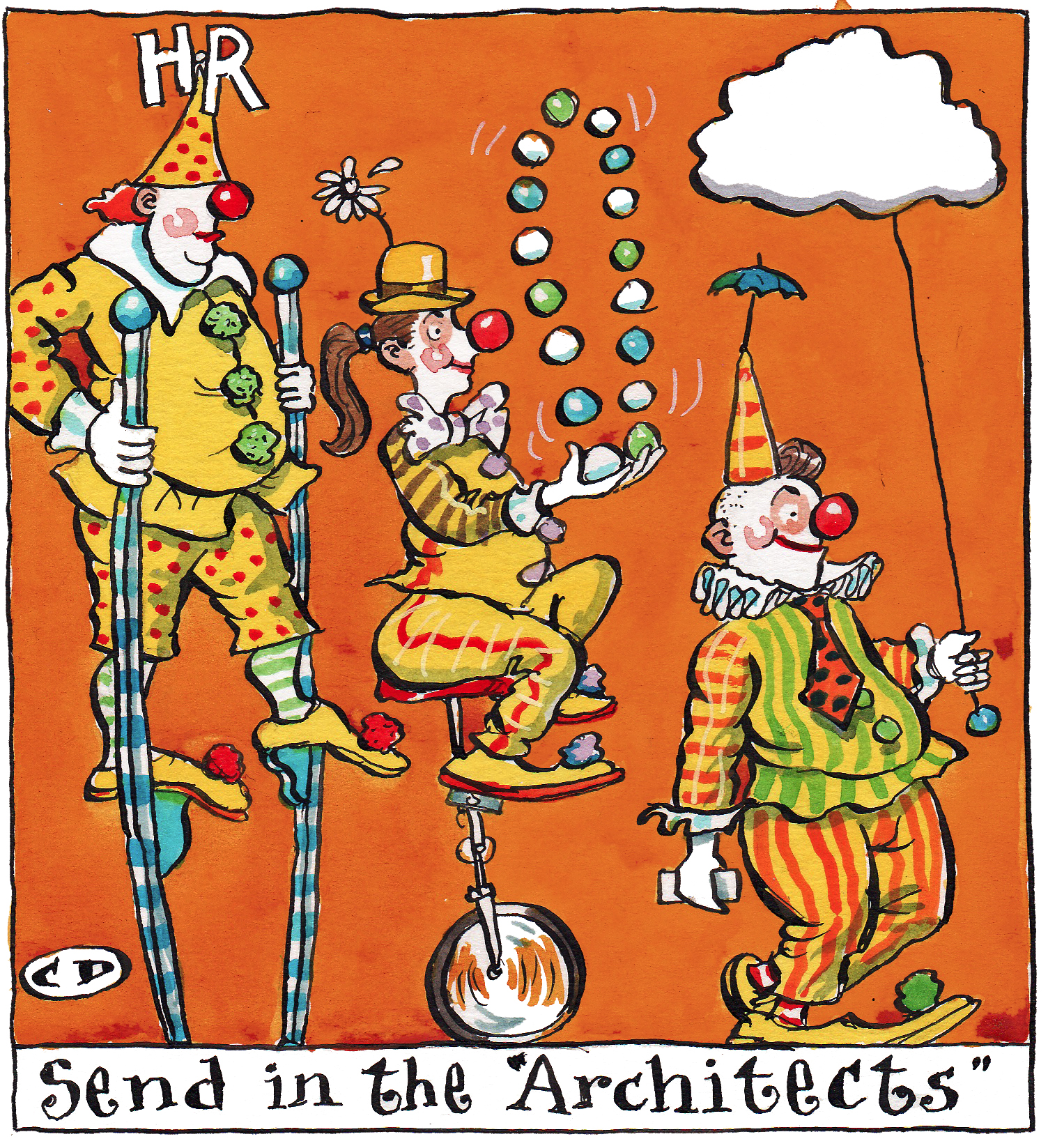I’m not a columnist any more, think of me as your words and ideas architect
What is the best paid job title in the UK? It is an architect, according to a detailed survey of salaries that came out last week. Those who know about the design and construction world will be confused: architecture is notoriously badly paid at the bottom end of the scale, considering that you need to study for seven years before qualification. After that, you could earn possibly as little as £27,000.
So, how have architects emerged as the fat cats of the jobs market? Well, of course, these are not building architects, these are very different types of architects, ones that have never designed a column, let alone calculated whether a fire-escape is safety compliant.
The recruitment company Reed has analysed all the jobs available on its website, which has listed 17 million posts over the past eight years, but excluded leadership roles, to ensure that chief executives and chief financial officers do not skew the data. The top three positions are: security architect, with an average annual salary of £115,700, a solution architect, on £100,700 and a cloud architect, on £98,400.
A cloud architect sounds like an Alice in Wonderland job, as nonsensical as a frog footman or unicorn, but the IT industry is now awash with “architects”. There are enterprise architects, control enablement architects, data warehouse architects, Azure cloud solution architects (a full bingo card there), and plain old technology architects.
Chris Adcock at Reed said the title has been in use for at least twenty years. “It started in software development, when they started to realise you couldn’t build websites or intranets without a plan,” he said. “You can’t build a house by letting the plumbers, the electricians, the builders start without any instruction so they stole the title and it does summarise it perfectly: you have to plan ahead when designing complex IT systems.”
No doubt he is right, and one could argue that co-opting the terminology is a compliment to proper architects (average salary £44,838, according to Reed), who are reduced to looking on forlornly from the sideline at the vast salaries available in the tech sector. Proper architects guard their title fiercely thanks to the Architects Act of 1997, allowing their trade body to prosecute unqualified rogues, but admit that there is nothing they can do about industries beyond construction using the title.
Of course new job titles emerge along with new industries but there is something slightly irksome about the tech sector using “architect”. It smacks not of an industry attracting the brightest and the best, but of one desperately trying to lure workers with ever more pompous job titles.

This is not limited to the technology world. The news industry is just as bad. Reporters are keen to become correspondents and correspondents yearn to be editors, but never actually do any editing, while associate editors dream of being executive editors or, best of all, editors-at-large, which is what columnists become when their expenses are too large to be cleared by the managing editor.
In investment banking, vice-presidents are barely more senior than the photocopying intern and there are usually more managing directors than there are meeting rooms. At the London offices of Teneo, a public relations company, there are 108 managing directors, of whom 66 are “senior managing directors”. This is absurd.
“Companies are struggling to hire good talent without spending more and more on salaries,” Adcock, himself a managing director, said.
The problem is that other sectors, in an effort to pretend that they are as whizzy and as well-paid as technology, have started to adopt the architect title but in most cases it makes no sense. A quick scout around the LinkedIn jobs section and you can find Sainsbury’s hiring a “senior architect”. Is this to ensure that its new supermarkets look more elegant than a brown shed? No. “You will play a crucial role in planning and defining the technical roadmap for your capability areas,” the job description reads.
There is an “employee experience architect” for hire at Willis Towers Watson, which I think is a fancy title for someone in the personnel or HR department, but who knows? I thought WTW was an insurance broker but they describe themselves as “insights masters, change catalysts, storytellers, culture shapers, org strategists, digital champions and more” so it could just as well be a job at a circus.
The publishing industry now regularly hires “content architects”, because anything with the word “book” in the title might scare off potential recruits. The marketing industry employs “brand strategists and content architects”, which is a grandiose way of saying, “I can write your tweets”, whereas a “chief brand and customer experience architect” means, “I can write your website”.
These jobs really exist and because they do it encourages all the thought leadership twonks on LinkedIn, the ones who misquote Ayn Rand and talk about the need to stay humble, to rebrand themselves as “change architects” or “cultural architects”. We live in an age where not only has self-identity become sacrosanct but so too the preponderance of esoteric labels over clarity of thought.
No one stops and asks: does this make any sense? A job title, of course, is sometimes about bolstering someone’s ego, or is given in lieu of a pay rise, but many now are so pretentious as to become meaningless and if the title is meaningless, one has to ask if the job is too.
In the modern economy you can now find an “inclusive culture architect” and a “diversity architect, equity advocate and social justice futurist”, as if somehow throwing all the buzzwords of 2023 into a word salad makes the role hugely important.
There comes a point, however, when an ever-more baroque job title could lead you to become the architect of your own downfall.
Harry Wallop is a consumer journalist and broadcaster. Follow him on Twitter @hwallop




Post Comment